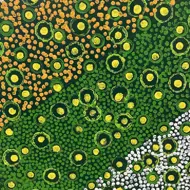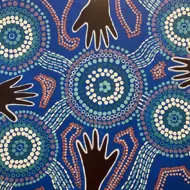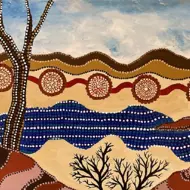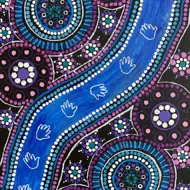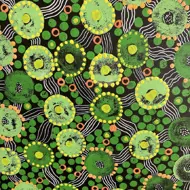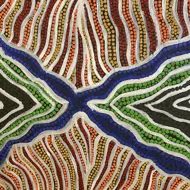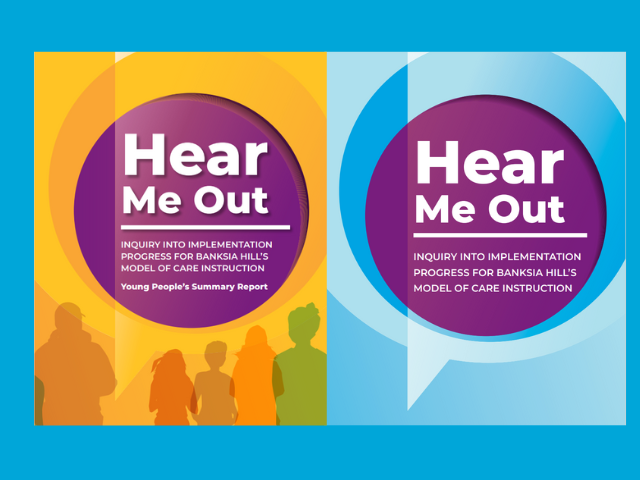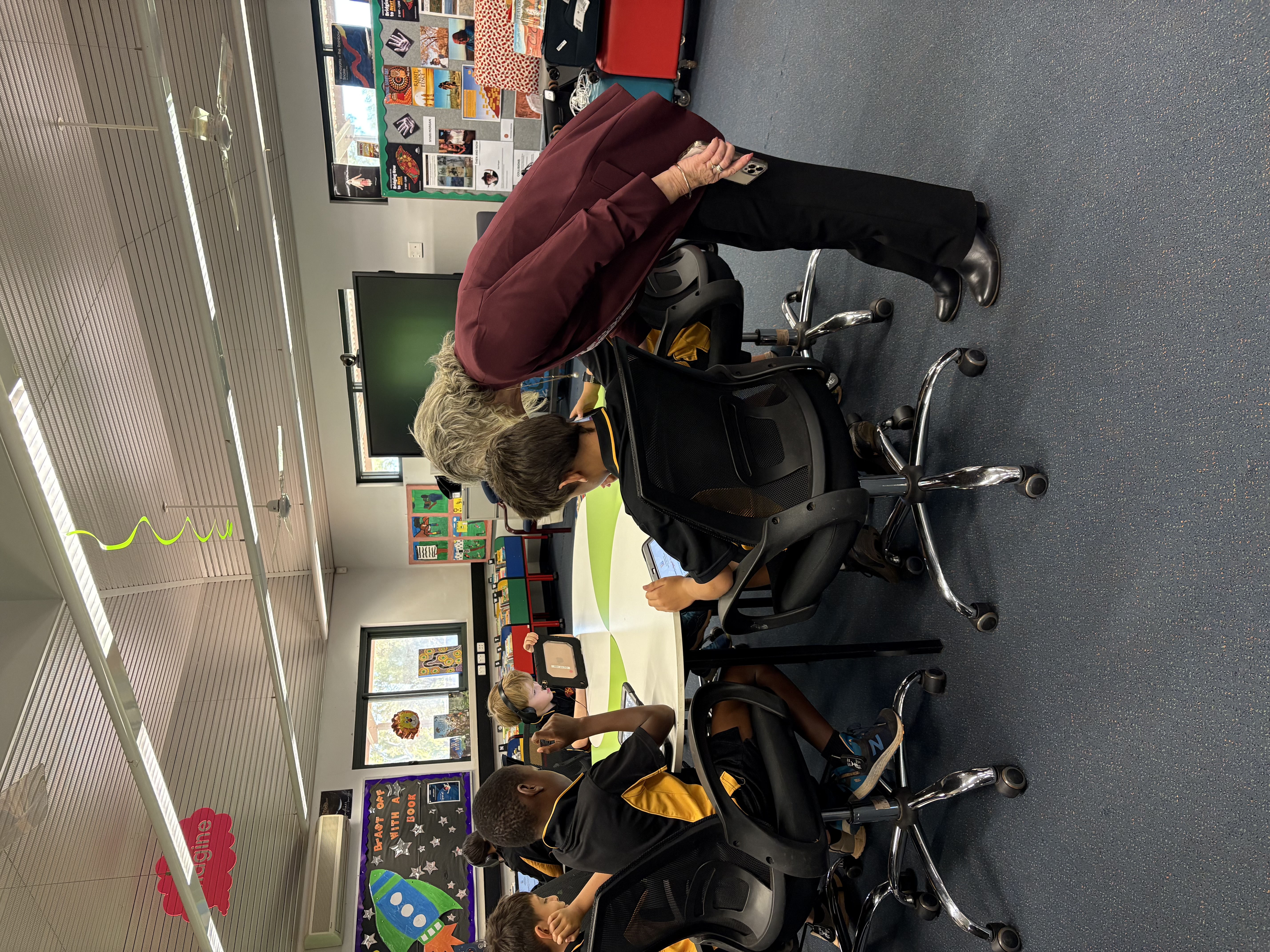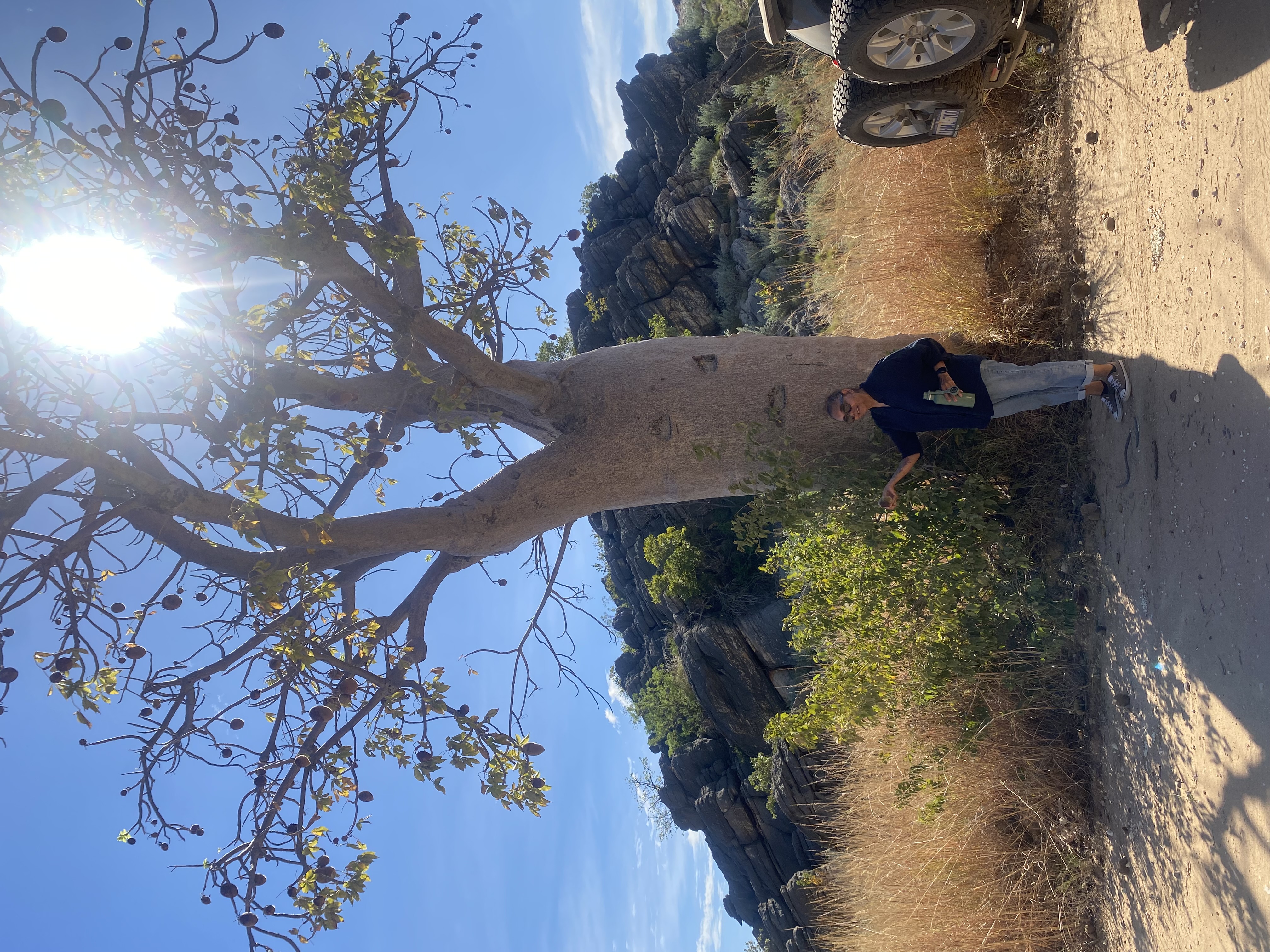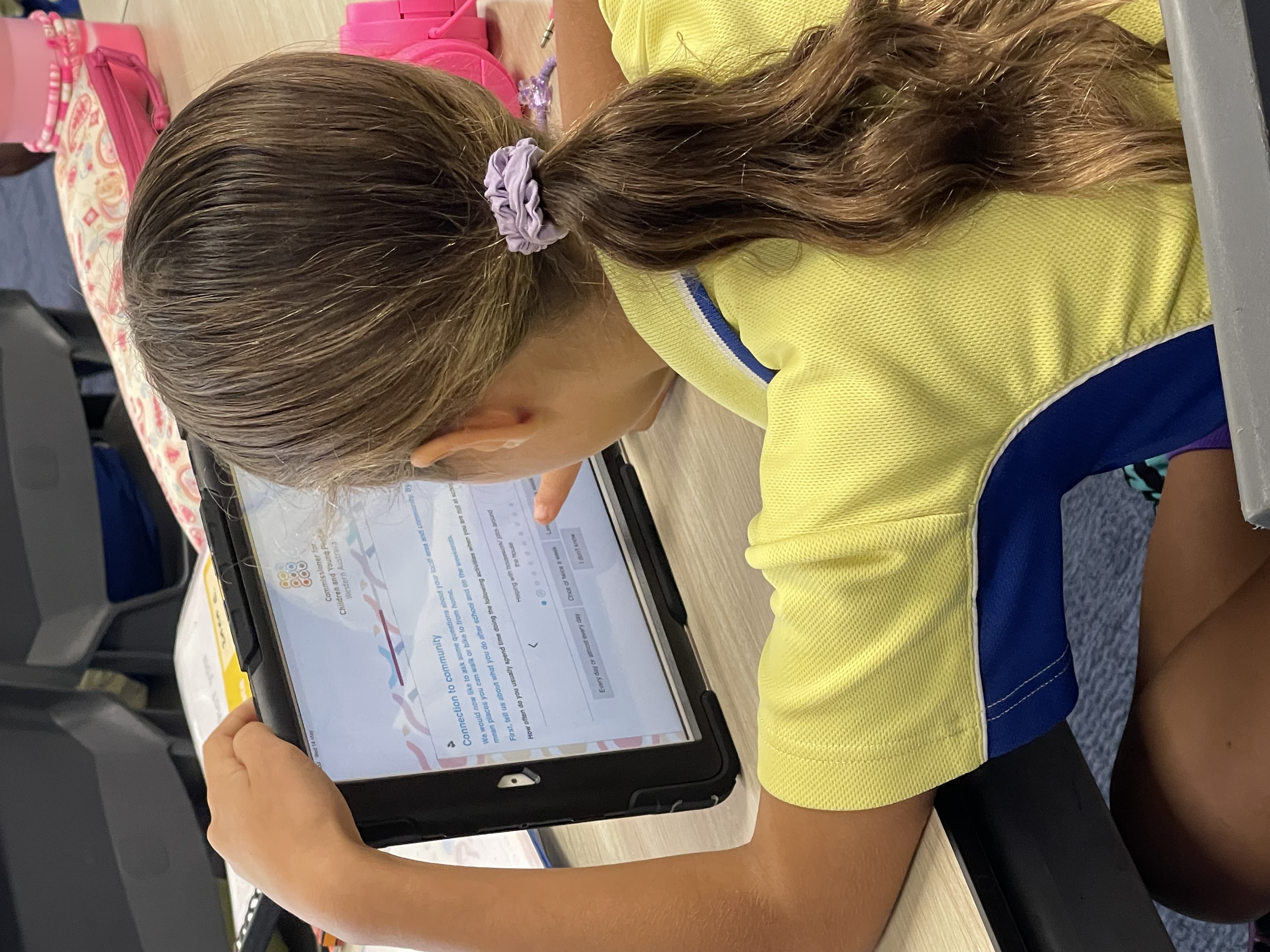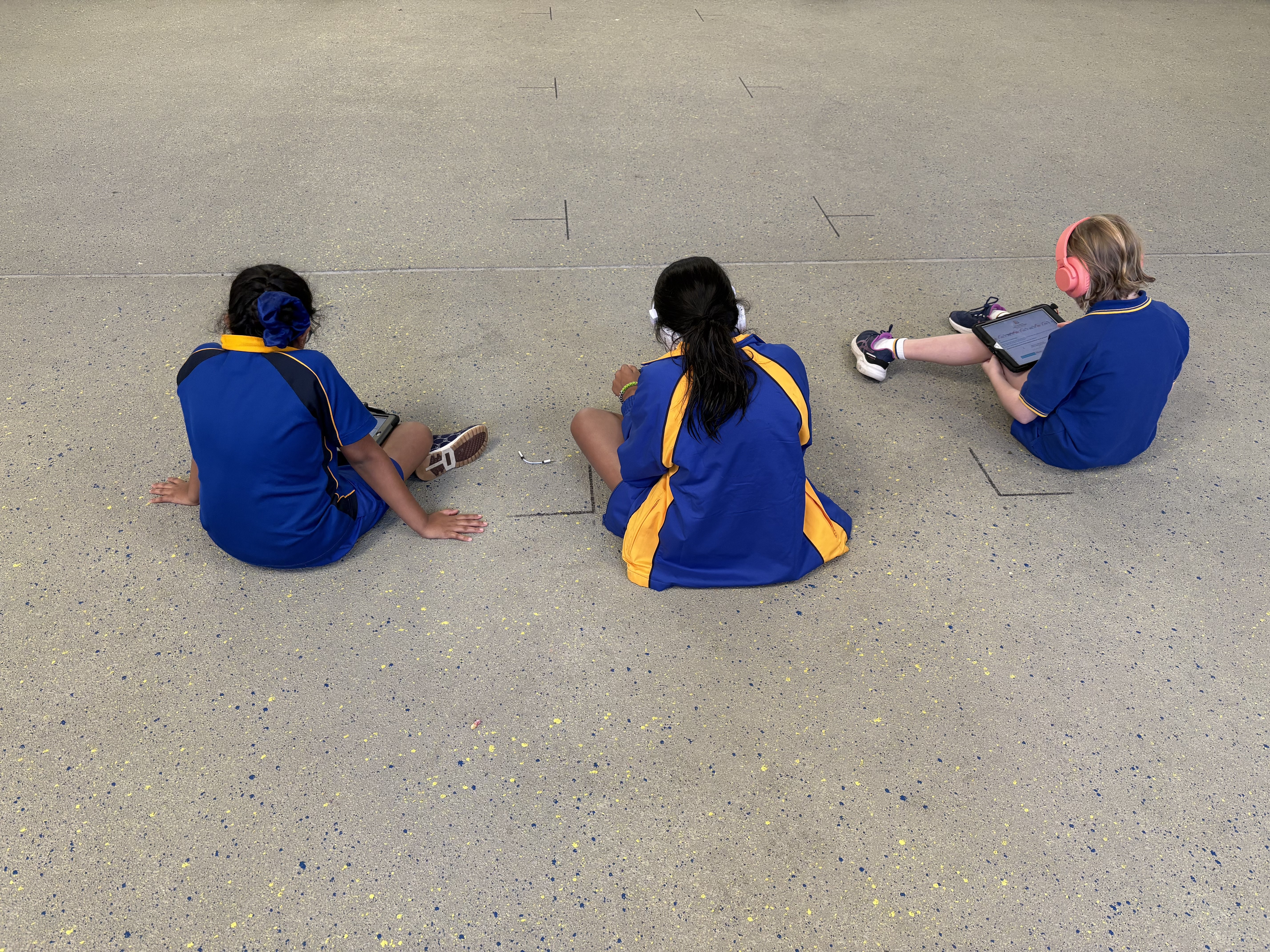Agency Performance
Engage with children and young people to hear their voice
This year, we heard directly from more than 11,600 children and young people in their own words, in classrooms, at youth centres, during creative forums, and through online surveys.
Whether they were speaking about mental health, safety, education, or their hopes for the future, their honesty and insight were powerful reminders of why their voices matter.
These conversations both informed our work and shaped it. By creating spaces where young people felt heard and respected, we deepened our understanding and strengthened our commitment to championing their rights and wellbeing.
These activities align with our focus areas to ensure children and young people shape our priorities, have a voice to share their experiences and have input into the work of the Commissioner. This includes identifying gaps in the provision of services, supports, policies, practices and approaches by both the government and non-government sectors.
Hear Me Out Report
Inquiry into Implementation Progress for Banksia Hill’s Model of Care Instruction
In August 2024 the Commissioner tabled the ‘Hear Me Out Report – Inquiry into Implementation Progress for Banksia Hill’s Model of Care Instruction’ – in the Western Australian Parliament.
The report included 16 findings and recommendations for Government, which focused on improving the health, safety and wellbeing of children and young people involved with the criminal justice system.
Face to face interviews with 43 children and young people in youth detention ensured the report reflected their thoughts, views and concerns. An online anonymous survey resulted in 40 staff and 20 service providers giving feedback and their views.
Recommendations focused on the requirement to address individualised, complex needs for children and young people whilst in detention and involving them in decisions and planning that affect them pre and post release. The importance of through care planning, the need for an appropriate recording system for each child and young person, developing and maintaining relational security and support for staff in this environment were also identified.
The recommendations are designed to support the Department of Justice, and in particular the Corrective Services Division, to monitor, review and evaluate the progress of implementation.
The Commissioner will review and monitor progress, with a request for formal tabling of six-monthly progress reports to Parliament against the findings and recommendations.
At the time of writing no formal response or updates had been received or tabled.
We welcome updates to the outstanding progress on recommendations that are ongoing or under review, and those recommendations that are being monitored over time.
The Commissioner continues to be an advocate for young people in detention in WA, highlighting issues with the youth justice system, in the media and with key stakeholders. Whilst positive steps have been undertaken, significant challenges remain.
"Officers are controlling and they don't trust us at all even when we go to (good) wing."
"It is important for the Commissioner to come out more often and hear what young people have to say."
Listening to young voices to shape reform
The Commissioner undertakes a Listening Tour each year to engage with children and young people from across the State to hear their voices on what matters to them.
During these events children and young people were encouraged to lead conversations, give voice to their concerns and share opinions on where they live and the lives they lead.
Key findings from the Listening Tour were that children and young people had a high level of concern about the environment, safety on public transport, mental health supports and the cost of living.
Student forums bring together children and young people from different schools to share their voices, and to provide guidance to the Commissioner on their priorities for reform and action. The Commissioner also attended individual schools and engaged with established youth advisory mechanisms such as Youth
Disability Advocacy Network (YDAN), the Youth Pride Network (YPN), Youth Homelessness Advisory Council (YHAC), Youth Affairs Council of Western Australia (YACWA), the Ministerial Youth Advisory Council (MYAC), Education Youth Advisory Council, multicultural youth events, and more.
The Commissioner met with more than 1000 children and young people in the Perth metropolitan region between July 2024 and July 2025. This included visits to primary schools, secondary schools, vocational schools and non-government organisations.
Listening Tours provide an opportunity for the Commissioner to hear directly from children and young people on topics that are important to them, and for them to ask the Commissioner questions.
Schools visited in 2024-25 included:
• Swan View Senior High School
• Carine Senior High School Year 11 politics and
law students
• WA Student Council Camp
• International School of Western Australia.
Key findings from the metropolitan Listening Tour were that children and young people had a high level of concern about the environment, safety on public transport, mental health supports and the cost of living.
Due to the right to vote being identified as a key topic, the Commissioner, with input from ‘Make It 16’, created an online survey for children and young people aged under 25, asking whether 16-18-year-olds should have the right to vote.
The survey attracted 1780 responses and a report was produced outlining the key findings.
Adults tell you not to worry (about racism), but we can't because we see it." Mid West student
In August 2024 the Commissioner hosted an interactive forum for Perth secondary students to explore their questions, concerns and awareness of artificial intelligence.
Children and young people shared how they perceived and engaged with artificial intelligence and identified its potential opportunities and risks.
The forum was presented by AI expert Dr Mehwish Nasim, lecturer at University of Western Australia in the School of Physics, Maths and Computing, and Dr Zulqarnain Gilani, Raine Robson Research Fellow and senior lecturer at the Edith Cowan University. Students
from Dianella Secondary College, Lakeland and Swan View Senior High Schools, Bob Hawke College and Perth Modern enthusiastically took part and shared their thoughts and learnings which will continue to guide the Commissioner’s work on this topic into the future.
The students had a great day and some of their
perspectives can be found on our website and
social media channels.
YouTube videos:
•What are young people’s concerns about AI
•What do young people wish adults knew about AI
•What impact will AI have on young people
•What opportunities does AI present for young people
•What’s positive about growing up with the use of AI
The Commissioner visited the Mid West region in September 2024, to meet with and listen to more than 100 children and young people, about what matters most to them.
Through seven events over four days, she
met with:
• Yamatji Nation Sea Rangers
• LGBTIQA+SB youth at headspace Geraldton
• Two student forums with children and young people from six primary and six local secondary schools.
Key findings:
• Increased entertainment and lifestyle opportunities
• Better mental health supports
• Concerns around cost of living and poverty
• Expanded education programs including anti-bullying measures.
During the year the Commissioner also visited the following regional schools:
• Djidi Djidi Aboriginal School
• Newman Primary School
• Wyndham District High School
• East Kimberley College.
Policy Position Statements and Priorities
Since commencing in January 2022, the Commissioner has made it a priority to ground the work of her office in the lived experiences of children and young people across WA.
Through consultation with thousands of children and young people over multiple years, the Commissioner has gained direct insight into the challenges they face, their aspirations, and their calls for change. In 2023, this ongoing engagement led to the development of four Policy Position Statements focused on the priority areas of Health and Mental Health,
Education, Child Protection, and Youth Justice.
Discussion papers were then distributed to children and young people, government and non-government organisations and Aboriginal Community Controlled Organisations to seek further input.
This included direct engagement with the WA Student Council (WASC); the Youth Disability Advocacy Network (YDAN); the Youth Pride Network (YPN); Child and Adolescent Health Services (CAHS) Youth Advisory Group (YAG); Child and Adolescent Mental Health Services (CAHMS) Lived Experience Advisory Group (LEAG); Aboriginal Health Council of WA (ACHWA) Youth Committee; Youth Homelessness Advisory Council (YHAC) and the Ministerial Youth Advisory Council (MYAC).
In 2025, following this extensive consultation, the office finalised and published updated Policy Position Statements to reflect emerging evidence and the voices of children and young people. For the first time, we also published a set of Policy Priorities, a clear summary of the most urgent areas for action across government and service systems. These priorities provide a practical pathway for reform, drawing direct links between what children and young people have said and what needs to happen next.
Click here to read about our priority areas
Youth Week WA
Youth Week WA (YWWA) 2025 was recognised from 10 to 17 April throughout the State. The theme was ‘Our Threads, This Place, Your Moment’.
It is Western Australia’s largest annual celebration of young people aged 10 to 25, providing them with an opportunity to express their ideas, raise important issues, create entertainment and celebrate young people’s contribution to the community.
The Commissioner ran a social media campaign to highlight Youth Week WA, designed by Savannah-Leigh, a young person completing her university internship with us as part of her marketing and communications degree.
Social media links:
Acknowledgement of Country Project
As an advocate for all children and young people across WA, the Commissioner wanted to create a new Acknowledgement of Country for the organisation that reflected their voices.
During Youth Week WA 2025 the Commissioner launched a project that invited children and young people to showcase their talent and creativity through words and/or drawings to share their respect for Traditional Custodians and the continuing connection of Aboriginal and Torres Strait Island peoples to Country, land and waters.
Some amazing entries were received, and the Commissioner was delighted to launch it as part of National Reconciliation Week 2025.
The Acknowledgement on the Commissioner’s website features a combination of wording from different submissions made by the children and young people.
Social media links:
•Acknowledgement of Country project reel
•Acknowledgement of Country project
Youth At Risk Network WA event
The Commissioner was delighted to sponsor this youth-led event coordinated by the Youth At Risk Network and provide some gift voucher for children and young people that attended. The free event in April featured information stalls from youth services, a music competition, sexual health testing, art, a basketball competition, hairdressers and an op shop. It attracted 60 children and young people who received free haircuts, sexual health tests and gathered information from a range of service providers that had stalls on the day.
Children's Week
Children’s Week is an important annual event dedicated to celebrating children and promoting the Rights of the Child (as proclaimed by the United Nations in 1954).
The Commissioner launched Children’s Week 2024 in Western Australia at the Bullsbrook Community Event run by Meerilinga. The Children’s Week theme celebrated the Rights of the Child Article 24, ‘Children have the right to a clean and safe environment’.
Throughout the week, photographs that positively showcased images of children from Western Australia were displayed on the large digital tower at Yagan Square in Perth.
Click here to view the Children's Week reel
"This was the best day ever. I'm so glad I came." Aboriginal female, aged 10, YARN event
Speaking Out Survey
The Speaking Out Survey (SOS) series stands as a cornerstone initiative in our pursuit of understanding and advocating for the needs of children and young people. The inaugural SOS in 2019 offered unprecedented insights into the views and experiences of our youth regarding health and wellbeing. A subsequent survey in 2021 shed light on the impact of the COVID-19 pandemic on their overall wellbeing.
The Commissioner and her team travel across metropolitan and regional WA delivering the survey to thousands of children and young people to provide a comprehensive perspective on the evolving health and wellbeing landscape over time.
The Speaking Out Survey is a critical project as it is one of the only representative wellbeing surveys of children and young people in Australia. It serves as a platform for children and young people in Years 4 to 12 across WA schools to voice their experiences directly. Through their self-reported data, we gain unique insights into critical areas such as safety, mental health, education engagement, community connection, and access to support services. By conducting regular surveys, we aim to track progress, identify trends, and adapt our strategies to meet the evolving needs of our youth effectively.
SOS in 2025 will feature one of the most diverse samples yet, with a significant increase in the number of regional and remote students surveyed, as well as Aboriginal and Culturally and Linguistically Diverse children and young people.
SOS publications:
SOS trip reels:
• Albany
• Pilbara
• Mid West
The team will continue to survey students into Term 3. The data is being analysed and reports will be prepared in the 2025-26 financial year on key trends identified during the survey.
The findings from the Speaking Out Survey underscore the importance of continued support for the wellbeing of children and young people. The Commissioner remains committed to ensuring the voices of children and young people are at the forefront of decision-making processes by advocating from these insights to inform policy and program development.
"As a young person working with the Commissioner for Children and Young People, I’ve had the opportunity to travel to schools and survey children and teens throughout WA. This has been a very rewarding experience because it’s very important for not just adults to have a voice but children and teens as well. This can give us the chance to speak out on what’s going on in our lives. This can be things like mental health, safety, and even the support of those around us. This can help create a safe space for all children and young people because a lot of children don’t actually get the chance to say how they feel so this is a chance for them to say how they feel because our voices matter.” Layla, 16, School-Based Trainee
More information about Agency Performance
Read the other pages in this chapter
